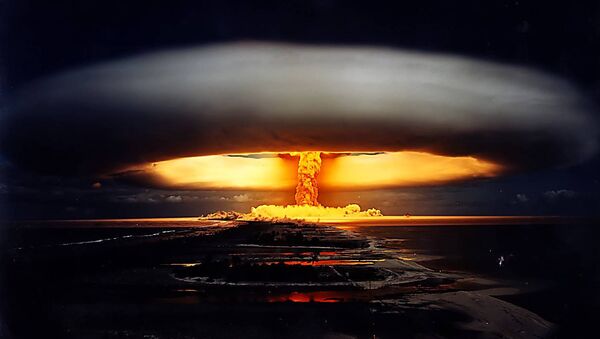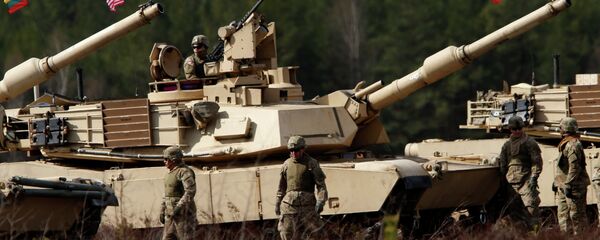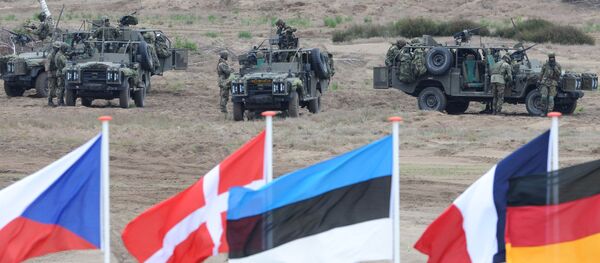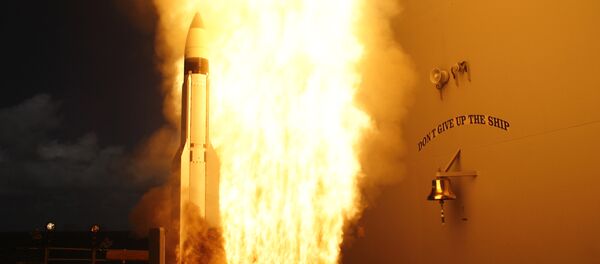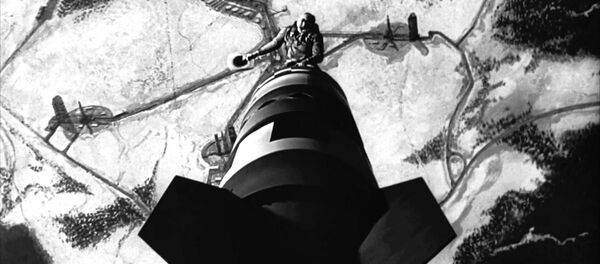On Tuesday, the US Navy announced that its command ship, Mount Whitney, is en route for military drills in the Baltic.
"BALTOPS is an annually recurring multinational exercise designed to enhance flexibility and interoperability, as well as demonstrate resolve of allied and partner forces to defend the Baltic region," reads a statement.
The largest multinational military drill in the region, the exercise comes at a tense time between Russia and Western nations, with growing signs that the world is in a second Cold War.
According to General Sir Richard Shirreff, former Deputy Supreme Allied Commander in Europe for NATO, however, the alliance’s actions in the Baltic are, inexplicably, necessary for peace. The military commander takes the argument into preposterous terrain, claiming that a failure to increase troop deployments in the region will result in nothing less than a nuclear war with Russia.
Shirreff’s argument is based almost exclusively on his own fictional book, "2017 War with Russia," in which he stridently imagines a Russian invasion of Estonia, Latvia, or Lithuania, a scenario he deems "entirely plausible."
From that possibility, Shirreff leaps to the conclusion that nuclear war would then be inevitable.
"The chilling fact is that because Russia hardwires nuclear thinking and capability to every aspect of their defense capability, this would be nuclear war," he told BBC Radio 4.
The general then went on to cite the continuously-refuted Western claims of "Russian aggression."
"We need to judge President Putin by his deeds not his words," the military general said. "He has invaded Georgia, he has invaded the Crimea, he has invaded Ukraine. He has used force and got [sic] away with it."
This argument, of course, ignores political realities, instead relying on myths of "reds under the bed" and other anti-Russian propaganda that has been continuously debunked by experts.
Shirreff’s solution to his imaginary problem is to “raise the bar sufficiently high for any aggressor to say it is not worth the risk,” to avoid a “perception” of NATO weakness.
"I would argue the bar is not high enough at the moment."
But an increasing military presence is rarely – if ever – an effective way to maintain peace. Russia, or any country faced with the same scenario, is forced to respond in kind to any new troop deployments to ensure its own security.
Referring to the United States’ recent decision to deploy new missile defense systems in Romania and Poland, Russian President Vladimir Putin has pointed out that such systems are actually part of Washington’s strategic nuclear capability.
"Now, after the deployment of those anti-missile system elements, we’ll be forced to think about neutralizing developing threats to Russia’s security," he said earlier this month.
Shirreff’s claims also conveniently sidestep the fact that it is the United States, not Russia, which demonstrates a disregard for nuclear nonproliferation efforts. The Obama Administration has authorized the spending of over $1 trillion on modernizing America’s atomic arsenal.
"By now we are accustomed to bizarre foreign policy moves from the White House. The last 15 years have seen a series of initiatives that defy reason and good sense," US academic Michael Brenner wrote for Consortium News last month.
"Against this backdrop, the program to spend $1 trillion on developing an upgraded arsenal of nuclear weapons with expanded capabilities suggests a return to 'normal' – that is, the bizarre."

